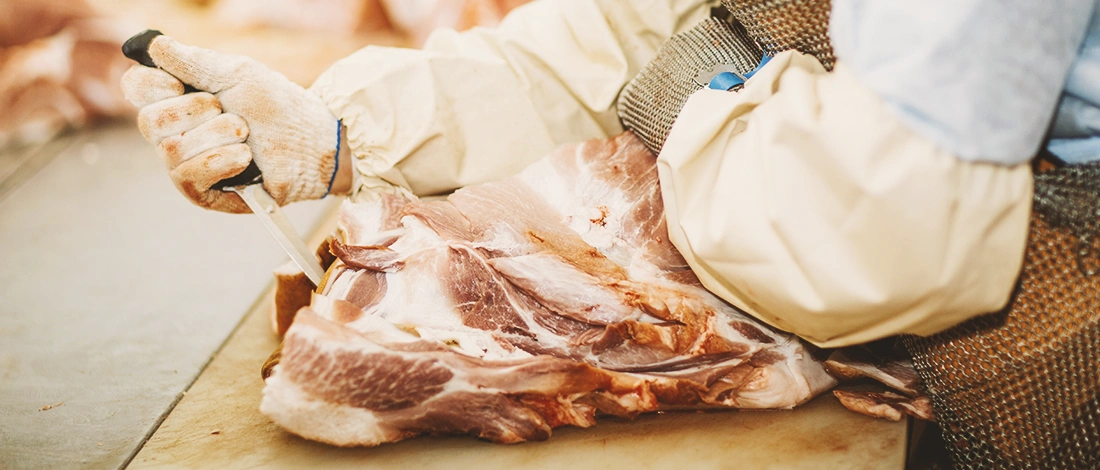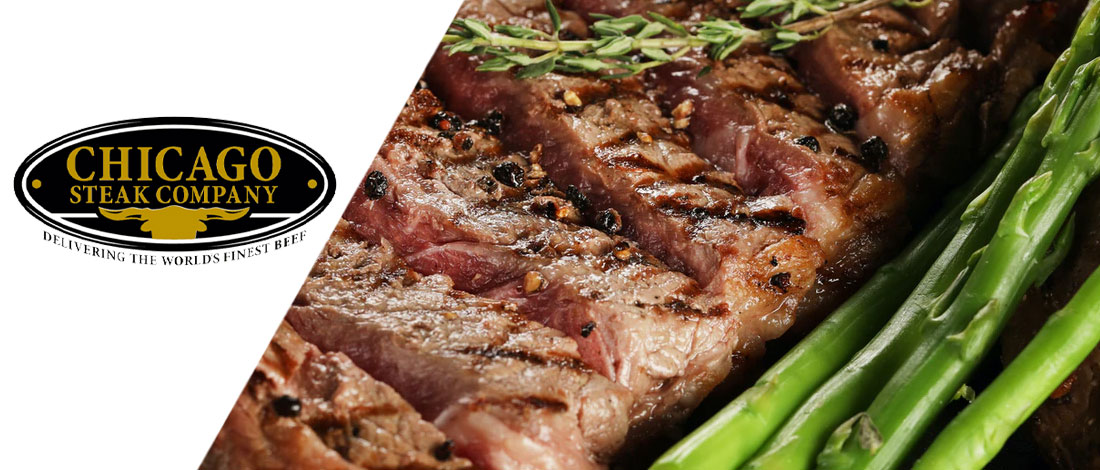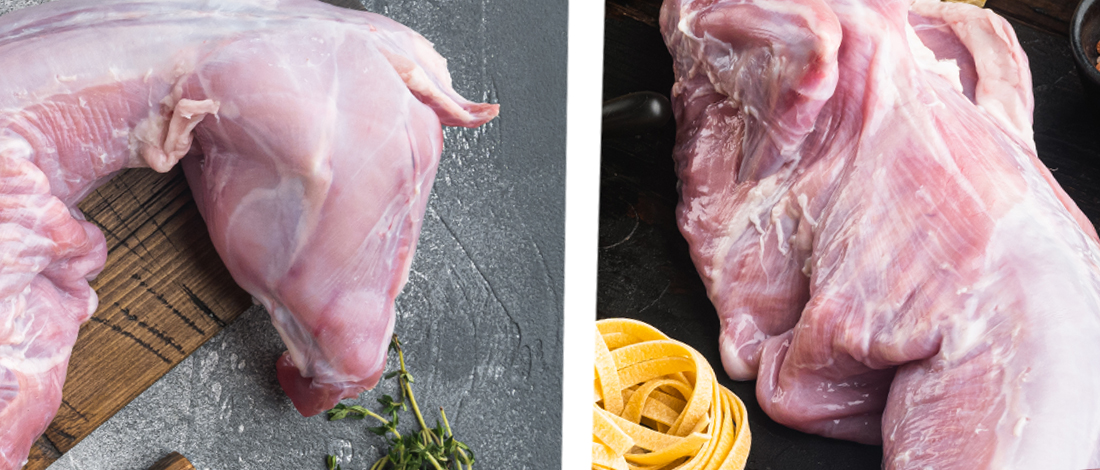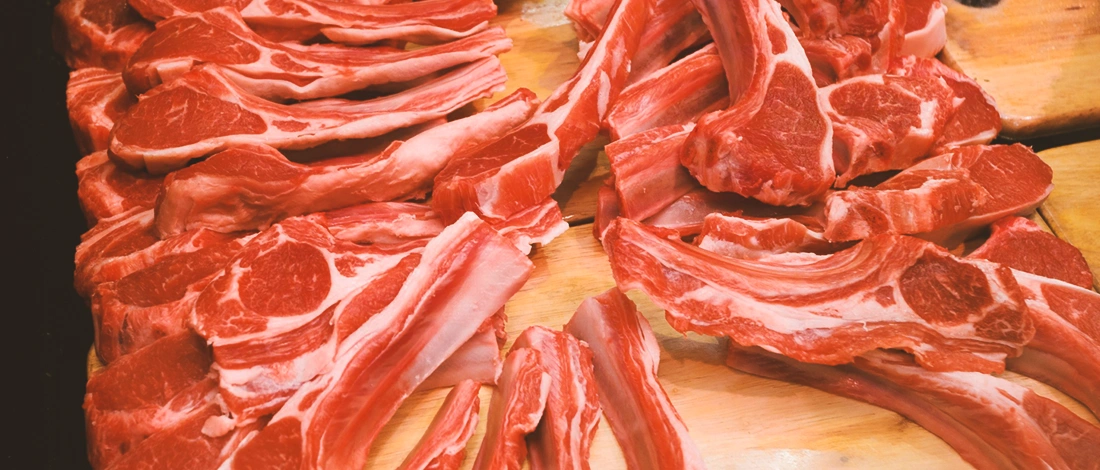When I was younger, I avoided the butcher shop like the plague. I was a poor student, with the mindset that I couldn’t afford high-quality meat.
At the time, I swore by supermarket meat in places such as Trader Joe’s or Costco, the low prices and “okay” tasting meat being fine at the time.
That was until I tried a flank steak from my local butcher shop, blown away by the quality and value for the price.
While supermarket meat may seem like a great deal, is it worth the pennies you are spending?
Today, the Carnivore Style's team is here to answer that question, covering the pros and cons of both establishments, as well as ways to save money on meat if you’re on a budget.
Quick Summary
- Supermarkets offer cheaper, pre-packaged meats, but the quality may not match that of a butcher's.
- Buying meat from a butcher can be cost-effective due to the superior quality and taste, despite the higher upfront cost.
- A 2020 Statista report found that 66% of U.S. citizens regularly purchased fresh meat from grocery stores, whereas 22% opted for butcher shops [1].
- Savings can be made at the butcher's by buying in bulk, choosing cheaper cuts, and looking for meat packages.
Which is Cheaper, the Local Butchers or the Local Grocery Store?
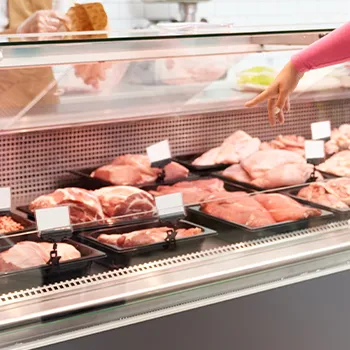
While you may think you already have this one figured out, let's look at the price beyond face value.
The biggest reason why people prefer to shop meat at grocery stores is the price. If you have a limited budget, the butcher shop prices may seem a little daunting.
So, people would much prefer to buy the pre-packaged meat sold in supermarkets and grocery stores.
However, just because these pre-packaged meats are cheaper on the surface, are they cost-effective?
The word ‘cost-effective’ means many different things to many different people. However, if we talk generally, cost-effective means getting value for your money.
“A good butcher is important to have. It's like a shrink.”
- Carson Daly
For example, if you save $3 on a steak from the supermarket, is it worth it if the meat is chewy and unpleasant to eat?
I would much prefer to spend the extra $3 to get fresh meat from a butcher. That is what I would call cost-effective.
You’ll be happy to know that it is still possible to shop at the local butchers at a low cost.
Here are some ways to do so:
#1 Look for Meat Packages
In many butcher shops, you will find packages containing many different types of meat. These packages are often discounted, maybe due to the butcher not being able to shift the meats on offer. It doesn’t mean the meat is less fresh, and it also allows you to try more cuts.
#2 Purchase in Bulk
Purchasing meat in bulk can be a great way to save some money. Most, if not all butchers, will give you a discount depending on how much meat you purchase at once.
You can store it in the freezer in serving sizes, taking it out when you are ready to eat. If you are worried about freezer burn, you can store the meat in vacuumed-sealed packages.
#3 Find Cheaper Cuts
As much as we all love a juicy cut of sirloin steak, opting for the less expensive round steak or brisket can save you a lot of money.
Even if a sirloin steak at the local supermarket has the same price as a round steak at the butchers, the meat from a butcher will be tastier and of better quality.
Which Cuts are the Cheapest?

The key to saving money when purchasing meat is to know which cuts are expensive and which are not. It will also let you know when you’re getting a good deal or discounts on meats.
Beef
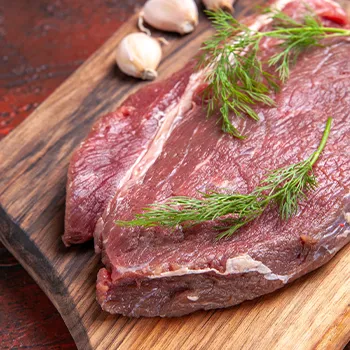
According to a 2021 Statista report, beef is one of the most expensive meats you can pick up these days, with brisket costing $8.84 on average in supermarkets [2].
All costs below are per pound.
- Sirloin steak: $8.98 [3]
- Skirt, flank, or cube steak: $6.70
- Round steak: $6.30
- Chuck roast: $6.20
- Brisket: $5.99
- Ground beef: $4.99
Pork
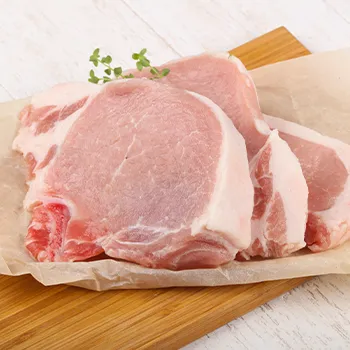
Pork is the second most expensive type of meat. All the prices below are per pound.
- Bacon: $5.50
- Boneless pork roast: $4.10
- Boneless pork chops: $4.05
- Ham: $4.20
- Sausages: $3.80
- Prime rib: $3.70
- Ground: $3.44
Chicken
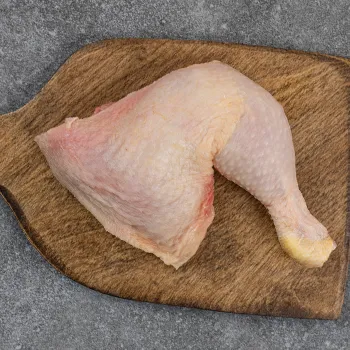
Chicken is the least expensive meat you’ll be able to get your hands on. All prices below are per pound.
- Whole chicken: $1.50
- Boneless: $3.40
- Boned: $2.10
Using this type of meat in your recipes instead of beef can save you up to $4 per pound, which is a lot of savings per week.
How to Save Money on Meat

I can’t go without meat. Even when I was a struggling student, I always found ways to incorporate meat into my diet and budget. With the rise in cost, it’s important to know ways to save some money.
- Bulk: As I mentioned before, buying your meat in bulk can save you a lot of money. Stocking up your freezer with larger amounts of meat can get you a great discount with lots of butchers - it won’t mean a sacrifice in quality.
- Sales: Always keep an eye out for sales. Both supermarkets and butchers would rather sell their meat at a discounted price than throw it away. You can either use these cuts as soon as you purchase them or freeze them for later.
- Fillers: Corn flakes and bread crumbs make great fillers if you don’t have enough ground meats.
- Choice Cuts: Compared to prime cuts, choice cuts are much cheaper to purchase. All you will have to do is tenderize and marinate the meat at home, but you will save cash doing so.
- Family Size: Family packs can save money per pound. If you’re not going to use all of the meat straight away, or you don’t have a large family, you can separate it up and freeze the meat for later.
- Lean Ground Beef: On the surface, 70% lean ground beef looks a lot more expensive than 96%. However, when you cook 96% ground beef, most of the fat melts away. So, in the end, 70% gives you more beef for your money.
- Deli Meat Ends: If you buy deli ends, you’ll save a lot of cash compared to usual deli meat. You can ask your butcher to save you the ends or ask if they have any available.
- Cut Your Own Meat: When you buy meat, look for untrimmed cuts. If you go home and trim them yourself, you’ll save yourself some cash.
- Holiday Sales: Before and after holidays like Easter, Thanksgiving, and Christmas, you’ll be able to find some meat on sale. If you’re not planning on cooking the meat as soon as you buy it, you can stock up and place it in the freezer for later.
- Research: It’s easy to pick up meat from supermarkets just because it’s convenient. However, you may be surprised to know how many deals you can pick up at your local butcher’s. Do your research and shop around.
Pros and Cons of the Butchers
Even though I much prefer shopping for my meat at the butchers, there are some things I dislike and would otherwise like to avoid.
Pros
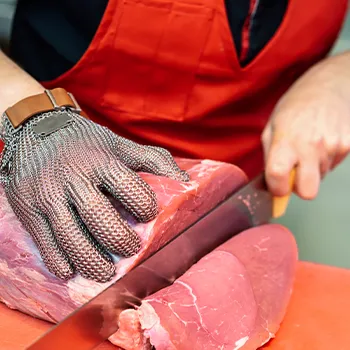
- Butchers love animals: Talk to a butcher, and you’ll realize just how much respect they have for animals. While free-range animals make the meat a lot tastier and of higher quality, it also means they live a happier and more fulfilling life. Local farms slaughter their animals humanely and don’t feed them antibiotics and steroids. This is one of the reasons meat from a butcher works out a little more expensive.
- You know what you’re getting: The truth is, you never really know what you’re getting from a supermarket. If you buy sausages in a supermarket, there is no guarantee that it is 100% pork - as long as it includes some sort of pork, they’re good to go. With a butcher, you’ll be able to find out which cut is which, where it comes from, and how it was raised. You’ll even get to see it cut right in front of you.
- Large selection, better quality, and service: Can’t find what you need at the supermarkets? Time to go to the butchers. They’ll have a large range of cuts you may have never even heard of. All the meat will be stored properly, and it hardly ever goes to waste.
- Keep it local: Shopping with local butchers also helps the local farms to keep going. While local farms and butchers can be pricey, you get to support your local community instead of large corporations.
Cons
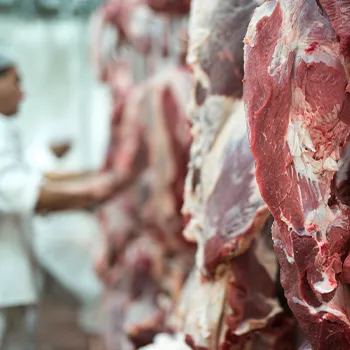
- Less convenient: If you prefer buying meat from a butcher, you will have to make two trips when shopping - the grocery store and the butcher shop. While this may not be a problem for some, others may have more difficulty taking more than one trip, especially for those who do not drive.
- More costly: Buying meat at the butchers can be more expensive, especially when looking for certain cuts. You may also have a harder time finding deals on meats since they will try their hardest to only stock fresh cuts.
- Longer waits: Since the butcher shop is usually a one or two-man show, you will most likely have to wait when the shop is busy. People may also request custom cuts which will make your wait a little bit longer.
Pros and Cons of the Supermarket
While you can save a lot of cash in the supermarket, there are also a few things that you have to look out for.
Pros
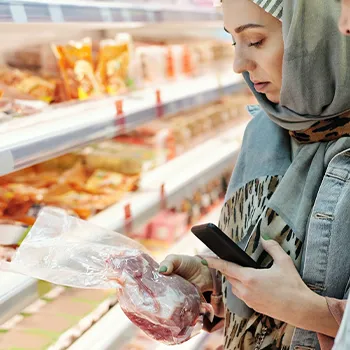
- Readily available: Since all the meat has already been packaged and set aside, it is easy to see what is available and what isn’t. Some supermarkets also have a butcher counter inside, so you may be able to inquire about custom cuts.
- One trip: Since everything you need is under one roof, you won’t have to make any additional trips.
- Coupons: If you’re lucky, you may be able to get your hands on some meat coupons, which will save you money at the supermarket.
- Cheaper: Supermarkets have cheaper cuts of meat compared to a butcher shop.
Cons
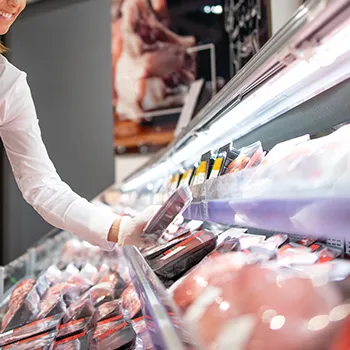
- Selective options: Since most supermarkets pre-cut and pre-package their meat, you’ll have a harder time finding the cut you’re looking for. You will also sacrifice quality.
- Limited customer service: Since most people working at the supermarket won’t have much knowledge about meats, they may not be able to give you much advice. They won’t have many ideas about meals, recipes, dishes, cooking tips, or less expensive suggestions.
Related Articles:
At Carnivore Style, we believe everyone can upgrade their meat quality as they learn and grow in their carnivore lifestyle. Check out our other guides to discover how to find the best meat for your budget and taste.
References:
- https://www.statista.com/statistics/1180441/fresh-meat-us-consumers-purchase-location-by-retail-channel/
- https://www.statista.com/statistics/539773/advertised-beef-brisket-prices-us/
- https://www.statista.com/statistics/236803/retail-price-of-sirloin-steak-in-the-united-states/


